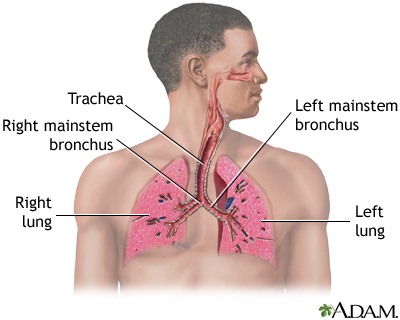Respiratory Infection

What is a Respiratory Infection?
A respiratory infection occurs when harmful microbes, such as viruses or bacteria, invade the respiratory tract. These infections can affect either the upper respiratory system (sinuses, nasal passages, and throat) or the lower respiratory system (windpipe and lungs).
Who’s at Risk for Respiratory Infections?
While anyone can contract a respiratory infection, certain individuals are at higher risk, including infants, elderly people, smokers, individuals with chronic illnesses (like diabetes, heart disease, or asthma), and those with a weakened immune system.
What Causes Respiratory Infections?
Respiratory infections are usually caused by viruses, such as the influenza virus or SARS-CoV-2 (which causes COVID-19), or by bacteria like Streptococcus pneumoniae. These pathogens are typically spread through droplets when an infected person coughs or sneezes.
How Do Respiratory Infections Start?
A respiratory infection begins when a person inhales the microbes, which then attach to the cells lining the respiratory tract. The pathogens multiply and produce toxins that damage these cells, causing the symptoms of an infection.
What Are the Symptoms of Respiratory Infections?
Symptoms vary depending on the type and severity of the infection, but common ones include cough, shortness of breath, fever, sore throat, nasal congestion, and fatigue. Lower respiratory infections may also cause chest pain and wheezing.
How is a Respiratory Infection Diagnosed?
Diagnosis typically involves a physical examination and medical history. Depending on the suspected pathogen, tests may include a throat swab, sputum culture, or blood tests. In some cases, a chest X-ray may be necessary.
How Can a Respiratory Infection Be Treated?
Treatment depends on the type of infection. Viral infections often require rest, hydration, and over-the-counter remedies to relieve symptoms. Bacterial infections may require antibiotics. Severe cases might need hospitalization, possibly with oxygen therapy or mechanical ventilation.
What Complications May Occur with Respiratory Infections?
Complications can include pneumonia, bronchitis, and in severe cases, respiratory failure. Chronic respiratory conditions, like asthma or chronic obstructive pulmonary disease (COPD), can be exacerbated by a respiratory infection.
How Can I Prevent Respiratory Infections?
Prevention strategies include regular handwashing, avoiding close contact with sick individuals, keeping the immune system strong with a healthy lifestyle, and getting vaccinated against certain respiratory pathogens, like influenza and pneumococcus.
Long-term Management of Respiratory Infections
Long-term management involves maintaining a strong immune system, managing chronic respiratory conditions, and practicing good hygiene to avoid exposure to pathogens.
What is Recent Research Saying About Respiratory Infections?
Recent research is focused on developing more effective vaccines and treatments, understanding the mechanisms of respiratory pathogens, and studying the long-term effects of severe infections, like COVID-19, on respiratory health.
Where Can I Go For More Information on Respiratory Infections?
For more information, visit reputable health websites like the National Institutes of Health or the American Lung Association.

